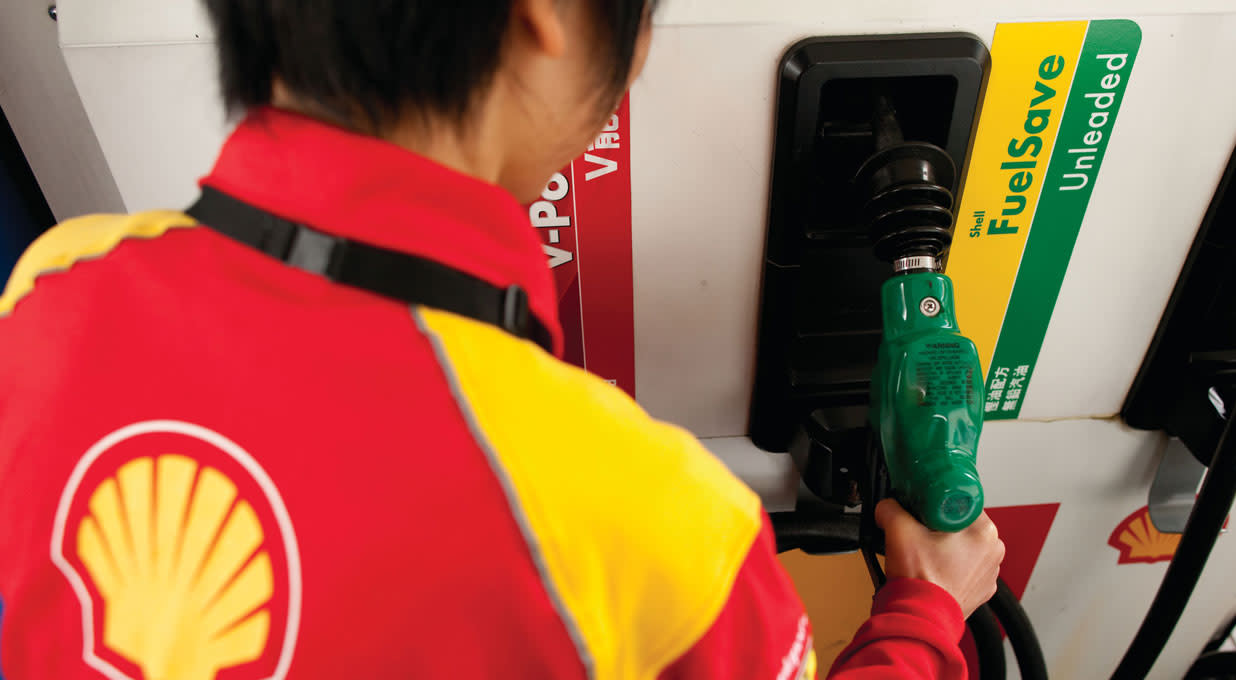Shell’s third-quarter revenue fell by 7% to $71.1bn, largely driven by a decline in the Marketing division.
Underlying earnings were more resilient, falling 4% to $6bn. Lower oil prices, refining margins and higher operating expenses were partly offset by favourable tax movements and higher Integrated Gas volumes. The result came in 12.5% ahead of forecasts, helped by better-than-expected results in all divisions bar Renewables and Energy Solutions.
Free cash flow rose from $7.5bn to $10.8bn reflecting both strong operating cash flow and reduced investment expenditure. Net debt fell by $2.9bn quarter-on-quarter to $35.2bn.
In the fourth quarter, Integrated Gas and Upstream production are expected to be broadly similar third quarter levels. Cash spent on investment is now expected to come in below the prior full-year guidance of $22-25bn.
A $0.344 quarterly dividend and further $3.5bn of share buybacks have been announced, with the latter set to complete before fourth-quarter results.
The shares were up 1.5% in early trading.
Our view
Shell’s relentless focus on cash generation has allowed it to make payouts to shareholders and reduce its net debt levels. For now, Shell’s main focus remains very much on oil & gas. With the company’s production of the black stuff set to remain stable through to 2030, oil prices will remain an unpredictable but crucial element of the group’s fortunes. As geopolitical tensions remain high and limited new supply coming online in the near term, we think the outlook for this part of Shell's business remains positive.
However, Shell's not a one-trick pony. It’s the market leader in terms of Liquefied Natural Gas, which may benefit from growth drivers such as the drive for energy independence, rising usage in heavy-duty transport, and waning popularity of coal in power generation.
In distribution, Shell is particularly well placed to provide lower carbon options to motorists. Its global network of 47,000 service stations is the largest of all the oil majors. By 2030, it's hoping to nearly quadruple the size of its Electric Vehicle charging estate, to around 200,000 connection points.
It’s also a big player Biofuels and is currently building one of the largest renewable hydrogen facilities in the Netherlands. These technologies can help provide alternative sources of energy for not just automobiles, but also heavy-duty trucks, planes, and ships.
Strong financials enable it to self-fund the significant organic investment required to replace oil reserves and pursue renewable energy and low-carbon fuel initiatives. Shell invests over $20bn each year across its business, with $10bn-15bn earmarked for low-carbon energy solutions between 2023 and 2025. However, this year’s investment spending is now set to come in lower than initially expected. If this proves to be part of a wider pullback, it could raise some questions over Shell’s longer-term growth prospects.
With a big chunk of cash flows ringfenced for shareholder returns, there’s also pressure for cash generation to remain high. On this front, Shell’s doing a remarkable job of navigating a tricky backdrop, maintaining high levels of shareholder payouts and continuing to pay down debt.
Shell’s valuation has held up well against a backdrop of falling oil prices, suggesting that investors are supportive of its financial discipline and priorities. The group’s not immune to further volatility in oil prices, but the strong financial position does help provide flexibility.
For now, energy prices and with them, Shell's current focus on shareholders returns are the main drivers of sentiment. Cash flows currently look healthy to us but investors should be prepared for ups and down along the way.
Environmental, social and governance (ESG) risk
Environmental concerns are the primary driver of ESG risk for oil and gas producers, with carbon emissions and waste disposal being the main issues. Health and safety, community relations and ethical governance are also contributors to ESG risk.
According to Sustainalytics, Shell's management of material ESG issues is strong.
This reflects a change in its business mix over recent years towards lower carbon fuels such as gas and L&G, and the exit from some of its more controversial assets. Despite Shell's numerous environmental and social targets, the company's impact on the environment and society remains relatively high. The decision to hold oil production steady till the end of the decade is likely to be met with some disappointment.
Controversies relating to environmental degradation, bribery and corruption, and community relations continue to play an important role in how Shell is perceived globally, as well as its financial disclosures around its renewables business.
Shell key facts
All ratios are sourced from Refinitiv, based on previous day’s closing values. Please remember yields are variable and not a reliable indicator of future income. Keep in mind key figures shouldn’t be looked at on their own – it’s important to understand the big picture.
This article is not advice or a recommendation to buy, sell or hold any investment.No view is given on the present or future value or price of any investment, and investors should form their own view on any proposed investment.This article has not been prepared in accordance with legal requirements designed to promote the independence of investment research and is considered a marketing communication.Non - independent research is not subject to FCA rules prohibiting dealing ahead of research, however HL has put controls in place(including dealing restrictions, physical and information barriers) to manage potential conflicts of interest presented by such dealing.Please see our full non - independent research disclosure for more information.


